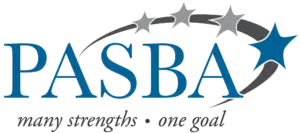Small Business Wins in the Big Beautiful Bill
The recently passed Big Beautiful Bill is packed with reforms designed to stimulate growth and innovation across America’s small business landscape. For entrepreneurs, solopreneurs, and microbusinesses, this legislation brings long-awaited relief in the form of small business tax breaks, streamlined compliance, and new opportunities to access federal incentives. Accountants and financial professionals have a vital role to play in helping businesses maximize these benefits.
What’s Inside the Big Beautiful Bill for Small Businesses?
The bill introduces a suite of updates that are already reshaping how small businesses approach financial planning. Here are a few of the most impactful provisions:
- Increased Section 179 Deduction Limits: Small businesses can now expense up to $2.5 million in qualified assets annually, a move that encourages investment in equipment and technology.
- Startup Credit Expansion: The bill boosts the startup business tax credit from $5,000 to $15,000 over three years, supporting early-stage ventures in managing their initial costs.
- Payroll Tax Relief: Employers with fewer than 50 employees may qualify for enhanced payroll tax credits, particularly those offering healthcare and training programs.
- Microbusiness Grants: A new pool of federal funding is being made available through state-administered grants for businesses with 10 or fewer employees.

Which Industries Benefit the Most?
While nearly all small businesses stand to benefit, certain industries are especially well-positioned. Service-based sectors such as construction, health and wellness, and professional services—especially those with employees—will find value in provisions targeting wage credits and infrastructure investments. Firms providing bookkeeping for contractors or accounting for healthcare professionals should pay close attention to new deduction opportunities and compliance changes.
Compliance Made Easier
The legislation also includes simplifications to federal reporting, especially for S-Corps and LLCs. For example, quarterly estimated payment schedules are now more predictable, and the IRS has committed to reducing penalty enforcement for first-time non-compliance. Working with a firm that offers business tax preparation and accounting consulting is more important than ever to stay aligned with these regulatory shifts.

What CPAs Should Be Doing Now
Accountants and CPAs serving small businesses must act quickly to educate their clients, revise forecasts, and adjust filing strategies. Updating your service offerings to include business advisory services will ensure you’re delivering value that aligns with the new economic landscape shaped by the Big Beautiful Bill.
Positioning Your Firm for Growth
This is more than just a tax update—it’s a business transformation opportunity. Firms that specialize in small business accounting should position themselves as trusted advisors, not just compliance partners. The Big Beautiful Bill offers a powerful reason to re-engage with clients and prospects alike. If you serve clients in industries like tech, construction, or retail, your expertise is more relevant than ever.
To learn more about how your firm can stay ahead of regulatory changes and better support your clients, explore our full list of accounting services designed for small businesses.





